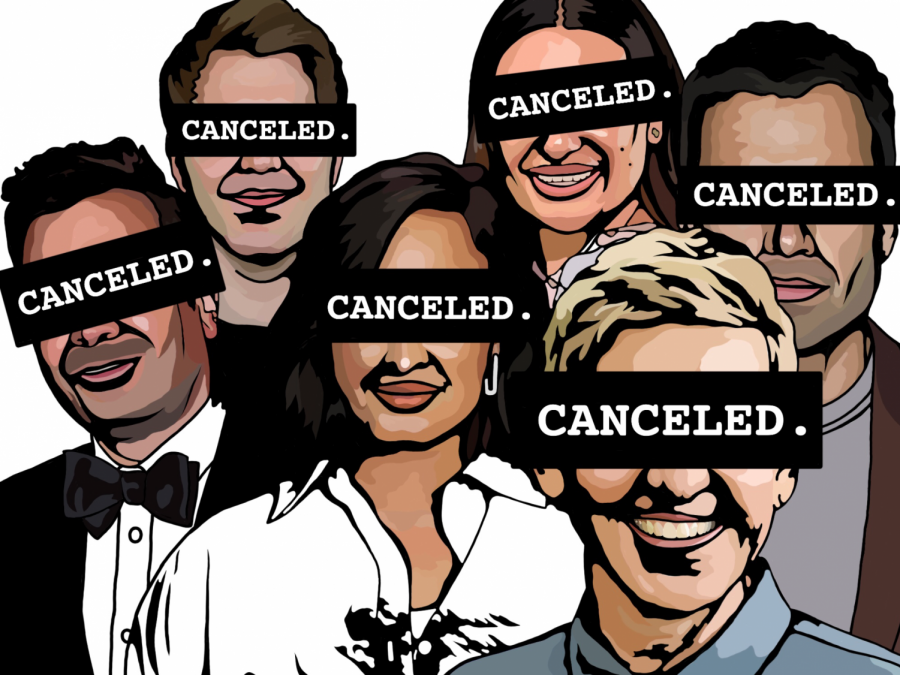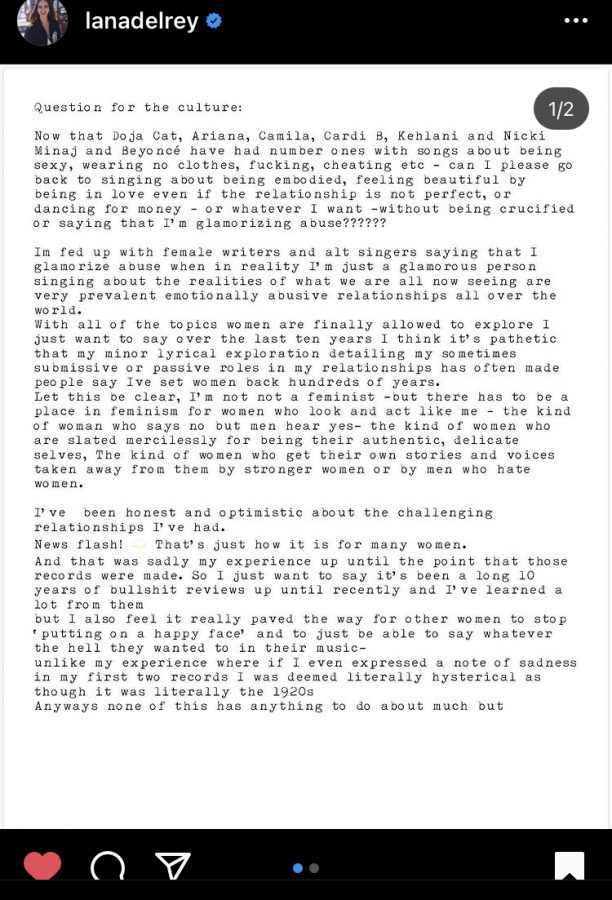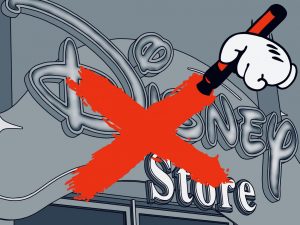OPINION: Cancel culture: Educate or eradicate?
Cancel culture has laid wreckage to many celebrities and ideas in 2020 alone, and has become such a dominating force in the scheme of social media that it has started to bring up the question of whether change can be brought about in a better way.
April 27, 2021
You may know the feeling: waking up to check social media and finding out your favorite celebrity has now been deemed “off-limits” by the Twitter world ultimately posing the question: should you join the masses and “cancel” them or continue supporting them?
This happened to Kevin Hart a couple of years ago when past tweets of his which came across as homophobic resurfaced and was subsequently “canceled” by many on social media. This occurred when he refused to apologize, causing his invitation to host the Oscars to be revoked. His declined invitation sparked controversy due to the Oscars’ historic shortage in the diversity department of which Hart’s presence was expected to alleviate. Although the Oscars could have invited another host of color–one that was less problematic–the question of whether or not “canceling” someone does more harm than good still stands.
“Cancel culture” is more prevalent within celebrities and is when people–usually through social media–shame others for having done or said something they find offensive or think causes greater harm.
But is going on the attack and “canceling” those you disagree with an effective way of promoting self-growth? Is there not a more effective path to change?
Cherie Eulau, a social science teacher at Foothill Technology High School (Foothill Tech) expressed that, “we [people] shouldn’t have that much power over each other.” While cancel culture can address societal flaws such as ignorance, bigotry or discrimination.
Eulau stated she, “question[s] the entire premise in terms of giving people the power to ‘cancel’ others. It is real, but how did we get to this point in society?”
In other words: how have there been so many injustices to the point we refuse to even listen to each other?
When asked if there was a more constructive approach on how to deal with someone as opposed to simply canceling them, Eulau suggested, “an attitude of ‘no person is canceled’ is a start.”
Unlike Eulau, Aaron Meraz ‘22 believes there is not a more effective route for growth. In many instances, he thinks cancel culture gives the ability to shed light on celebrities who have had people concerned due to their polarizing behavior.
However, when Meraz was asked about politicians being canceled as opposed to celebrities, Congresswoman Alexandria Ocasio-Cortez (AOC) came to mind. AOC has been boycotted after backlash over her political stances on the Israeli–Palestinian conflict. It’s Meraz’s belief that certain issues are far too complex for someone to simply be canceled over, especially since politicians typically don’t have the time to care about those online trying to spar with them over their beliefs. On the other hand, Meraz believed certain celebrities have had their careers unnecessarily ruined due to it, such as singer Lana Del Rey’s.
Del Rey had been canceled by some on social media due to an Instagram post in which she discussed her beliefs on feminism and the demonization of her lyrics. In this post she expressed her frustration with the media using her song lyrics to accuse her of glamorizing abuse, severely limiting her creative outlet. The biggest criticism people had, however, was the name dropping of several female artists, namely women of color.
This is one of many examples of cancel culture arguably doing more harm than good, as Del Rey, similar to Kevin Hart, refused to apologize in another post. Her unapologetic attitude demonstrates the lack of effectiveness cancel culture has due to its frequent inability to properly educate people, thus revealing an interesting aspect of cancel culture: it often fails at its aim of correcting offensive behavior, sometimes even creating a greater injustice in the process.
Ultimately, cancel culture is up for debate on whether it is effective and leads to actual change. It is important to remember that when possible, embrace and educate people. Everyone must make their voice heard but do so wisely so real change can take effect: take action, don’t limit yourself to Twitter.
















